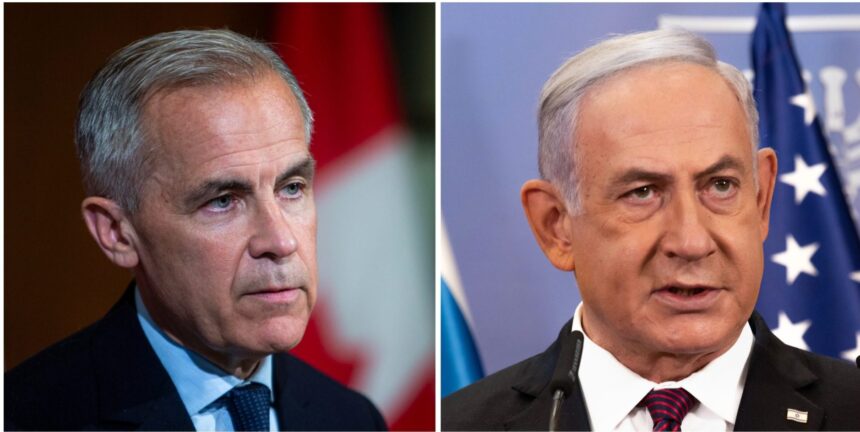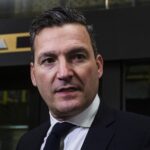I stepped onto the tarmac at Ben Gurion Airport yesterday as temperatures soared past 35°C—both literally and diplomatically. Prime Minister Carney’s first major foreign policy test unfolds here in a region where Canadian political capital has historically run thin.
“The new Prime Minister brings fresh eyes to old problems,” explained Avi Cohen, senior analyst at the Israel Policy Forum, as we sat in a Tel Aviv café just hours after Carney’s delegation touched down. “But fresh eyes don’t guarantee fresh solutions in this landscape.”
Carney’s Middle East tour marks his first significant international engagement since taking office. The trip strategically places Canada between delicate diplomatic positions—seeking to maintain traditional alliances while recalibrating Canada’s stance on the Israel-Palestine question amid increasing humanitarian concerns.
My convoy passed through three security checkpoints before reaching the Canadian delegation’s headquarters. Inside, officials appeared both energized and visibly tense. One senior advisor, speaking on background, characterized the Prime Minister’s approach as “economically pragmatic but morally clear-eyed.”
This trip follows months of shifting Canadian policy. Under the previous administration, Canada maintained strong pro-Israel positions while offering humanitarian aid to Palestinians. Carney’s early signals suggest subtle but meaningful adjustments to this balance.
Data from the United Nations Office for the Coordination of Humanitarian Affairs (OCHA) shows civilian infrastructure damage exceeding $8.7 billion in Gaza since October 2023. Meanwhile, Israeli security concerns remain acute, with defense officials reporting ongoing threats from multiple fronts.
“We cannot separate economic stability from security, nor security from human dignity,” Carney stated during his brief arrival statement. This three-part framework appears to guide his approach—language that carefully bridges competing regional narratives without fully embracing either.
Canadian trade with Middle Eastern nations totaled approximately $12.8 billion last year according to Global Affairs Canada, representing a modest but strategically significant portion of Canadian international commerce. Energy partnerships, technology exchanges, and agricultural trade underpin these relationships.
The economic dimension of Carney’s visit cannot be overlooked. Before entering politics, his background as former Bank of Canada and Bank of England governor positioned him uniquely among world leaders in understanding financial markets’ role in regional stability.
“Carney speaks the language of risk assessment,” said Layla Hamdi, director of the Middle East Economic Forum in Amman, whom I interviewed via secure call last night. “He views instability through both humanitarian and market lenses—a perspective neither side can easily dismiss.”
In Jerusalem this morning, the Prime Minister met with Israeli officials, walking a careful line between acknowledging security concerns and emphasizing humanitarian imperatives. Tomorrow, he travels to Ramallah for discussions with Palestinian Authority leadership.
What makes this visit particularly significant is its timing. Regional tensions have escalated following last month’s border incidents, and American diplomatic engagement has stalled amid their election cycle. The diplomatic vacuum creates both risk and opportunity for middle powers like Canada.
The European Union’s special envoy Martina Rossi, whom I encountered at a diplomatic reception last evening, noted: “We welcome Canada’s renewed engagement. The region needs voices that can speak credibly to multiple parties.”
On the streets of Jerusalem, public reactions to Carney’s visit reflect the complexity he faces. Outside the King David Hotel, small demonstrations represented competing viewpoints—some demanding stronger Canadian support for Israel, others calling for increased pressure regarding Palestinian rights.
“We don’t need more words,” said Fatima Khalidi, a Palestinian rights advocate I spoke with near Damascus Gate. “We need concrete policies that recognize our humanity.”
Meanwhile, Canadian Jewish organizations have urged Carney to maintain Canada’s historical support for Israel while exploring avenues for regional de-escalation. The Prime Minister must navigate these domestic pressures while establishing his international credibility.
According to a recent Abacus Data poll, 64% of Canadians support a “balanced approach” to the Israel-Palestine question, while only 18% favor strong alignment with either side. This domestic consensus gives Carney political room to maneuver, though defining “balance” remains contentious.
Military cooperation also shadows the diplomatic engagement. Canada currently maintains limited defense relationships with several regional partners, including cybersecurity cooperation with Israel valued at approximately $22 million annually, according to Department of National Defence figures.
The question of expanded security partnerships versus humanitarian priorities creates natural tension within Canadian foreign policy. Standing at the security barrier this afternoon, watching military vehicles patrol, I was reminded how theoretical diplomatic positions become visceral realities on the ground.
Water access represents another critical dimension of Carney’s discussions. The World Bank reports that 97% of Gaza’s aquifer water is undrinkable, while regional drought conditions threaten stability across borders. Canadian water purification technology could offer practical support that transcends political divisions.
As night falls over Jerusalem, the Prime Minister’s next moves remain closely watched. Whether Carney can translate his economic expertise into diplomatic leverage represents the central question of this visit—and potentially defines Canada’s Middle Eastern engagement for years ahead.
In the words of one veteran Canadian diplomat who requested anonymity: “Carney has the intellectual tools to understand this region’s complexities. What remains unknown is whether he has the political will to make difficult choices when competing values inevitably clash.”
Tomorrow’s meetings will provide early indications of that political will, as Canada’s newest leader attempts to write his first chapter in one of diplomacy’s most challenging narratives.






